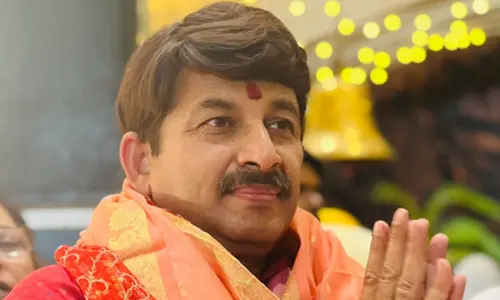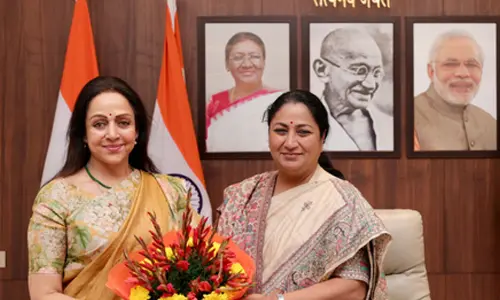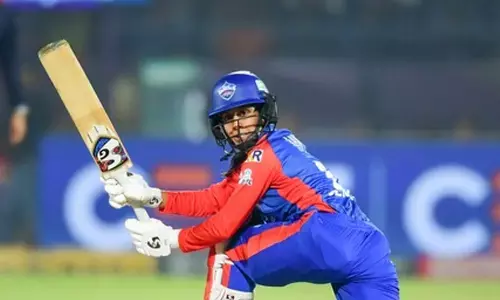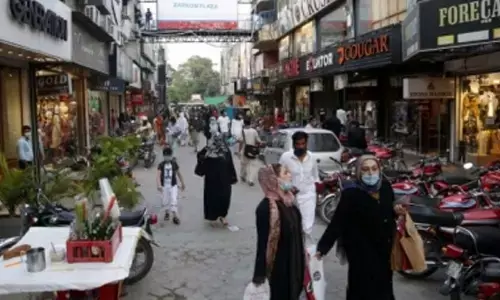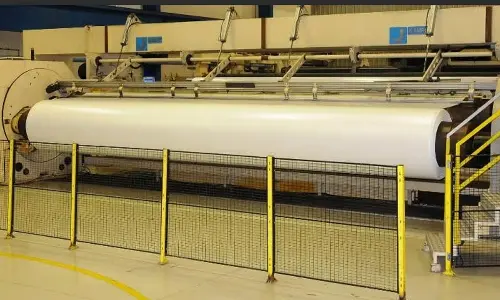AAP On Mission Telangana after Punjab
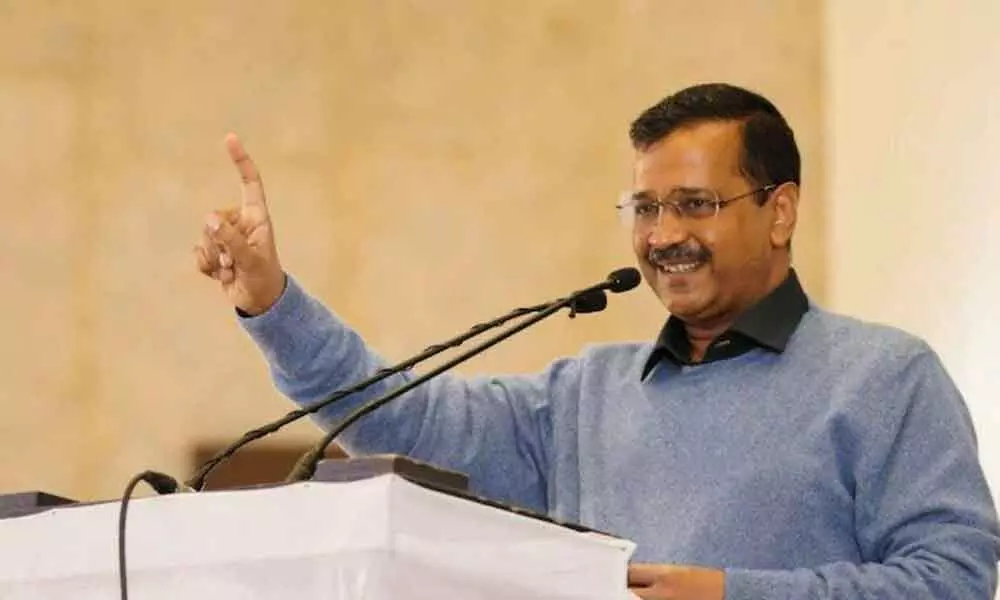
Arvind Kejriwal
Any party thinking of making inroads into Telangana needs to know the political plank on four fronts: employment; agriculture; irrigation and decentralisation of power. Unlike Punjab, the decentralisation of power with the formation of new districts is applauded in Telangana. There is also a distinct role played by the left in Telangana politics
It is a harsh reality of Indian politics that with just one victory, politicians become so confident they take on bigger challenges to show off their bravado.
The announcement by AAP national convener and Delhi Chief Minister Arvind Kejriwal to launch padayatra in Telangana on April 14 to coincide with Ambedkar Jayanti has startled the people here.
AAP South India in-charge and Delhi MLA Somnath Bharti said: "Of course, we want to capture power as we are a political party and want to put an end to rampant corruption in the State. KCR is the messiah of corruption. He has drained the State's treasury of thousands of crores of rupees."
No doubt, Aam Aadmi Party has proved its mettle in Delhi and Punjab, but its new yearning for capturing power in Telangana needs to be seen in a practical way. To understand how the party swept Punjab Assembly polls after 2017 debacle, there is a need to understand the Delhi Model which comprises four crucial planks of welfare delivery – quality school education, healthcare, water and electricity at affordable rates. These few things only helped the AAP against the Congress and other regional parties in Punjab.
The party made its debut by winning 20 seats, out of the 117 seats it contested, back then in 2017 Punjab elections, thereby securing the main opposition status. From 20 seats then to 92 seats now is a tremendous achievement but will it work the same way in other states too? Or is it too early for the newbie to think of other states?
Party prospects in TS
To discuss the politics of Telangana, one needs to delve into its history. The historic Telangana movement, which began in 2001, was spearheaded by today's Chief Minister K Chandrashekar Rao. And, apparently, the citizens of the State have time and again trusted him since the formation of the State in 2014. The politics of the state originates with the local culture and traditions whose championing formed the very basis of the movement for bifurcation.
The two national parties – BJP and Congress – are minor players in the State with a meager presence in the State Assembly. The CM knows the region and plays his cards well in wooing the voters in every election. Of the total population, Backward Classes, Dalits, Adivasis and minorities – Muslims and Christians – constitute 85 per cent and the upper castes account for remaining 15 per cent. The old part of the city has been a stronghold of AIMIM since 1960s and still the party did not expand to other parts of the State.
Telangana and Punjab are two different states and have no geographical or political connections whatsoever. The politics here basically spring from the identity of Telangana people, culture and dialect and their overall character. It is not based on the grievance of backwardness alone.
The main demand for separate Telangana State was for political representation to Telangana's sons-of-the-soil and the choose a leader from the State only and not from elsewhere. This has always been the political reality in Telangana right from its movement to its formation.
Any party thinking of making inroads into Telangana needs to know the political plank on four fronts: employment; agriculture; irrigation and decentralisation of power. Unlike Punjab, the decentralisation of power with formation of new districts is applauded in Telangana. There is also a distinct role played by the left in Telangana politics.
Another weak ground is that AAP has always been in news for its rift with the centrally-appointed Lieutenant Governor. TRS balances the State's interests with the relations with the Central government. Both the electoral and non-electoral left exist in Telangana, and even though they may not directly be in positions of power, they do wield substantial moral influence on politics.
On the other side, fed up with the existing parties, the people in Punjab decided to place their bets on a new party. The BJP never had roots among the Sikhs, Shiromani Akali Dal (SAD) was still reeling under allegations of corruption and the Congress was in disarray. These factors worked in AAP's favour. Even the prolonged agitation by the farmers helped AAP in a way. But this does not guarantee victory elsewhere.
Presently, there are multiple parties floated in Telangana State to take on the TRS. Just late last year, YSR Telangana Party chief Sharmila had undertaken a padayatara in the State. Now, on the same lines, AAP is launching padayatra to start off its campaign for the next Assembly elections in Telangana.
AAP had its presence in Punjab since last assembly elections and thus it was fair enough that it won now. But here AAP may take years to gather strength and garner votes. Its future is uncertain. Telangana Rashtra Samithi, Bharatiya Janata Party, Indian National Congress and All India Majlis-e-Ittehadul Muslimeen are among the major players and the two Communist parties, Telugu Desam and YSRCP have disappeared from the scene in Telangana.
Why foray into other Southern states?
Alongside Telangana, the AAP has announced its plan of massive southern march. The party will start its membership drive in Telangana, Andhra Pradesh, Tamil Nadu, Karnataka, Kerala, Puducherry, Andaman & Nicobar Islands and Lakshadweep. Its recent opening of the unit in Goa shows that the party is seeking to try its hand at electoral politics. Even the past experiences show that, in one or two attempts, the party is unable to penetrate. Nonetheless, these states have their unique politics and parties of the region know their politics well.
AAP has actually contested many times in other States but could not get positive response and remained cipher except in Goa and Punjab only now. In united AP, it contested 145 assembly seats in 2014 but polled only 88,909 votes, or 0.37 percent of total valid votes and all its candidates forfeited their deposit. Similarly, in 2014, the party contested
8 Lok Sabha seats in Telangana polled only 46,796 votes and lost its deposit. Again, in 2018 Assembly polls in Telangana, AAP contested 41 seats, polled 13,134 votes (0.19 percent) and lost its deposit. It did not contest the Lok Sabha elections in Telangana in 2019.
AAP – the probable opposition face?
Any opposition party which is giving a tough fight to BJP attracts support. AAP has managed to speak on issues of governance. The Congress' existential crisis is compounded by AAP emerging as an option for the opposition camp in a few States. Even Mamata Banerjee can lead the show from the back, keeping AAP at the forefront. The internal crisis in Congress is worsening its situation in the country and this can be advantageous for AAP. Thus, it must focus on building its base in other states. The party had won just 4 Lok Sabha seats out of the 432 it contested in 2014 and this tally decreased further in 2019 to just one seat.








